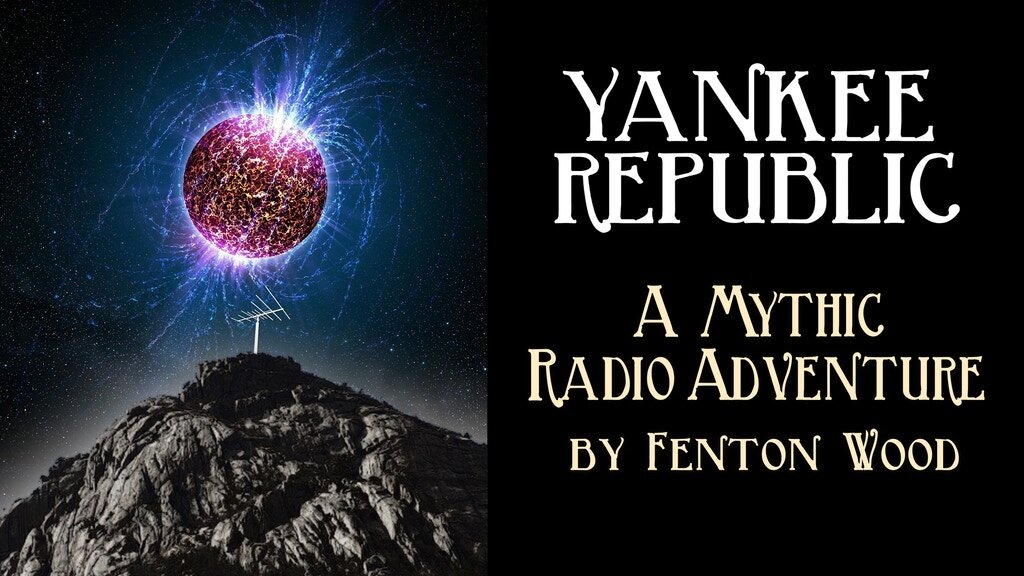Emperor Norton Ponders Thick and Thin Descriptions

Norton I, Emperor of the United States, photograph, c.1871–72
By Notwist - Own work, Public Domain, https://commons.wikimedia.org/w/index.php?curid=5633343
Earlier this month, Emperor Norton wrote an absolutely fascinating blog post on the limits of description in fantastic literature. Norton promised a follow-up on creating dense descriptions, but in the interim, Norton has written a further exploration of the limits of description that contains an assertion that clicked with me:
Fantasy settings (and a lot of science fiction) have no shared history or past, or it’s inadequate and, in any event, not very significant for the reader. The French Revolution is a meaningful concept; the Fall of This or That Fictional Empire in Fantasy Setting #234 isn’t unless it links, symbolically or aesthetically, to something we know and can relate to so we can get the reference (like Star Wars did with the Republic and the Empire.)
That is one of the most obvious, yet least acknowledged, fantasy world-building problems (at least as defined post-Tolkien): that their worlds are, in fact, quite empty. But that would be a subject for another post.
I realized after reading this paragraph that the authors I like best in science fiction/fantasy/adventure have a facility for pulling in history, myth, and legend into their works in order to compensate for the [inherent?] thinness of fantasy worlds.
Norton didn’t use quite my term, which I am borrowing from one of Greg Cochran’s blog posts on Thick and Thin. A thin problem is one that can be modeled and understood by following clear chains of logic. A thick problem is one that is a mess of details.
Let’s look at some examples.

Jerry Pournelle’s works are almost always re-skinned history. The Janissaries series [Amazon link] I am reading right now draws heavily from Rome, but also from Europe generally, spanning centuries. In particular, Jerry does religion well. I am reminded of a phrase I read years ago in a review of A Song of Ice and Fire by Danny Yee, that Martin’s invented religions were not sociologically plausible. Westeros retains the structures and practices of Catholic Europe, without Catholicism. Janissaries, on the other hand, simply recapitulates the religions of the time periods Jerry is mining for material, and thus can draw on all of that real history.

Tim Powers is famous for his secret histories, which allow him to set his books in either the past or the present, thus easily bypassing the thinness of fantasy world building. However, Tim also draws heavily on myth and legend, like Daedalus and the Minotaur, or Cronus eating his chidlren. Tim Powers is thus double-dipping, giving his works an exceptional richness. Declare [Amazon link], for example, combines the very real history of the double agent Kim Philby with a re-telling of the Deluge and Noah’s Ark that is so compelling that it almost replaces mundane history in my mind.

Nick Cole and Jason Anspach exhibit two other aspects of world building: shared experience and re-invention of the past. The first book in the Galaxy’s Edge series [Amazon link], Legionnaire, is very much a product of the post 9/11 Global War on Terror. Accordingly, the Galaxy’s Edge audience skews pretty heavily towards veterans of the Afghanistan and Iraq, who understand the references and the inside jokes. Galaxy’s Edge is also pretty clearly inspired by Star Wars, in much the same way that Star Wars was a re-imagining of Flash Gordon and other pulp era space opera. This gives Galaxy’s Edge an appeal beyond just veterans. An important element of making a good story is building upon other similar stories, and making them new again.

Fenton Wood’s Yankee Republic series [Amazon link] is a good example of how you can take a similar idea in completely different directions than another author. Like Tim Powers, Fenton makes myths real, but Fenton’s work has a dream-like quality that Tim’s does not. Perhaps selecting alternate history instead of secret history allows for this; I find Fenton’s Yankee Republic to be more true than truth, like Sorelian myth.

Timothy Zahn is in a different bucket than the rest of the authors I have selected here. I think his worlds can be a little thin, in Norton’s sense, but Tim makes up for it with a superb physical intuition. Tim often writes stories that take our world for granted, change one thing, and follow the consequences of that one thing to the end. Thin worlds [in the Greg Cochran sense] can be good, if you have the chops to follow through on whatever it is you want to introduce into a world that is otherwise fundamentally like ours.
With fantastical stories, maintaining suspension of disbelief is important. There are clearly lots of strategies for doing so, but they are not always executed well. Both thick and thin strategies are possible, but I probably have a preference for thicker ones.
Other books by Jerry Pournelle
CoDominium
The Prince (Colonel Falkenberg Omnibus)
King David’s Spaceship
Golden Road
There Will Be War
There Will Be War Volume IX: After Armageddon
There Will Be War Volume X
Tran
Janissaries [first review in 2011]
Janissaries [second review in 2020]
Clan and Crown
Storms of Victory
Red Heroin
Other books by Tim Powers
Last Call
Expiration Date
Earthquake Weather
Galaxy’s Edge season 1:
Legionnaire: Galaxy's Edge #1 Book Review
Galactic Outlaws: Galaxy's Edge #2 Book Review
Kill Team: Galaxy's Edge #3 Book Review
Attack of Shadows: Galaxy's Edge #4 Book Review
Sword of the Legion: Galaxy's Edge #5 Book Review
Tin Man: Galaxy's Edge Book Review
Prisoners of Darkness: Galaxy's Edge #6 Book Review
Imperator: Galaxy's Edge Book Review
Turning Point: Galaxy's Edge #7 Book Review
Message for the Dead: Galaxy's Edge #8 Book Review
Retribution: Galaxy’s Edge #9 Book Review
Tyrus Rechs: Contracts & Terminations:
Requiem for Medusa: Tyrus Rechs: Contracts & Terminations Book 1 Review
Takeover
Takeover: Part 1 Book Review
Takeover: Part 2 Book Review
Takeover: Part 3 Book Review
Takeover: Part 4 Book Review
Takeover Book Review [summary for the omnibus edition]
Order of the Centurion
Order of the Centurion #1 Book Review
Iron Wolves: Order of the Centurion #2 Book Review
Stryker’s War: Order of the Centurion #3 Book Review
Through the Nether: Order of the Centurion #4 Book Review
The Reservist: Order of the Centurion #5 Book Review
Savage Wars
Savage Wars: Savage Wars #1 Book Review
Gods & Legionnaires: Savage Wars #2 Book Review
The Hundred: Savage Wars #3 Book Review
Other books by Fenton Wood
Pirates of the Electromagnetic Waves (Yankee Republic Book 1)
Five Million Watts (Yankee Republic Book 2)
Other books by Timothy Zahn
New Thrawn series:
Thrawn
Thrawn: Alliances
Thrawn: Treason
Quadrail series:
Night Train to Rigel: Quadrail book 1 review
The Third Lynx: Quadrail book 2 review
Odd Girl Out: Quadrail book 3 review
The Domino Pattern: Quadrail book 4 review
Judgement at Proteus: Quadrail book 5 review
Original Thrawn Trilogy:
Heir to the Empire
Dark Force Rising
The Last Command
Blackcollar series:
The Blackcollar: Blackcollar series book 1 review
The Backlash Mission: Blackcollar series book 2 review
Dragonback series:
Dragon and Thief
Dragon and Soldier
Dragon and Slave
Dragon and Herdsman
Dragon and Judge
Dragon and Liberator



Comments ()